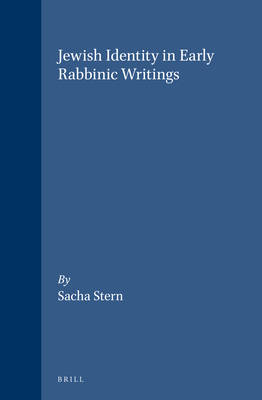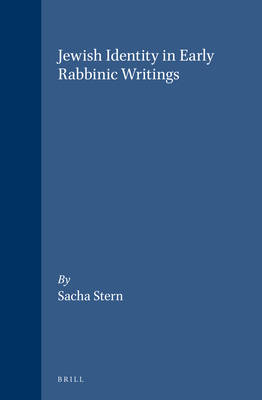
- Afhalen na 1 uur in een winkel met voorraad
- Gratis thuislevering in België vanaf € 30
- Ruim aanbod met 7 miljoen producten
- Afhalen na 1 uur in een winkel met voorraad
- Gratis thuislevering in België vanaf € 30
- Ruim aanbod met 7 miljoen producten
Zoeken
Omschrijving
Jewish Identity in Early Rabbinic Writings is more than a question of legal status: it is the experience of being Jewish or of 'Jewishness' in all its social and cultural dimensions. This work describes this experience as it emerges in Talmudic and Midrashic sources.
Besides the question of "who is a Jew?", topics include the contrast between Israel and the non-Jews, the physical embodiment of Jewish identity, the 'boundaries' of Israel and resistance to assimilation. Jewish identity, it is argued, hinges essentially on the Divine commandments (mitzvot) and on Israel's perceived proximity with the Divine.
Drawing on a variety of disciplines, including the theories of William James and Merleau-Ponty, this study raises important issues in anthropology, as well as accounting for central aspects of early rabbinic Judaism.
Besides the question of "who is a Jew?", topics include the contrast between Israel and the non-Jews, the physical embodiment of Jewish identity, the 'boundaries' of Israel and resistance to assimilation. Jewish identity, it is argued, hinges essentially on the Divine commandments (mitzvot) and on Israel's perceived proximity with the Divine.
Drawing on a variety of disciplines, including the theories of William James and Merleau-Ponty, this study raises important issues in anthropology, as well as accounting for central aspects of early rabbinic Judaism.
Specificaties
Betrokkenen
- Auteur(s):
- Uitgeverij:
Inhoud
- Aantal bladzijden:
- 312
- Taal:
- Engels
- Reeks:
- Reeksnummer:
- nr. 23
Eigenschappen
- Productcode (EAN):
- 9789004100121
- Verschijningsdatum:
- 1/08/1994
- Uitvoering:
- Hardcover
- Formaat:
- Genaaid
- Afmetingen:
- 165 mm x 243 mm
- Gewicht:
- 707 g

Alleen bij Standaard Boekhandel
+ 787 punten op je klantenkaart van Standaard Boekhandel
Beoordelingen
We publiceren alleen reviews die voldoen aan de voorwaarden voor reviews. Bekijk onze voorwaarden voor reviews.











